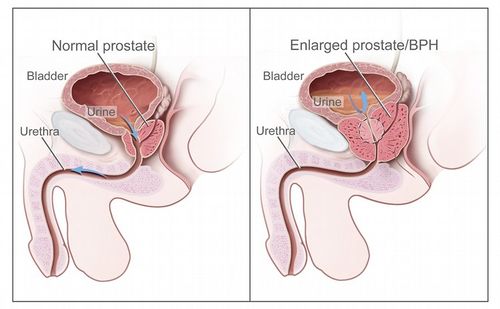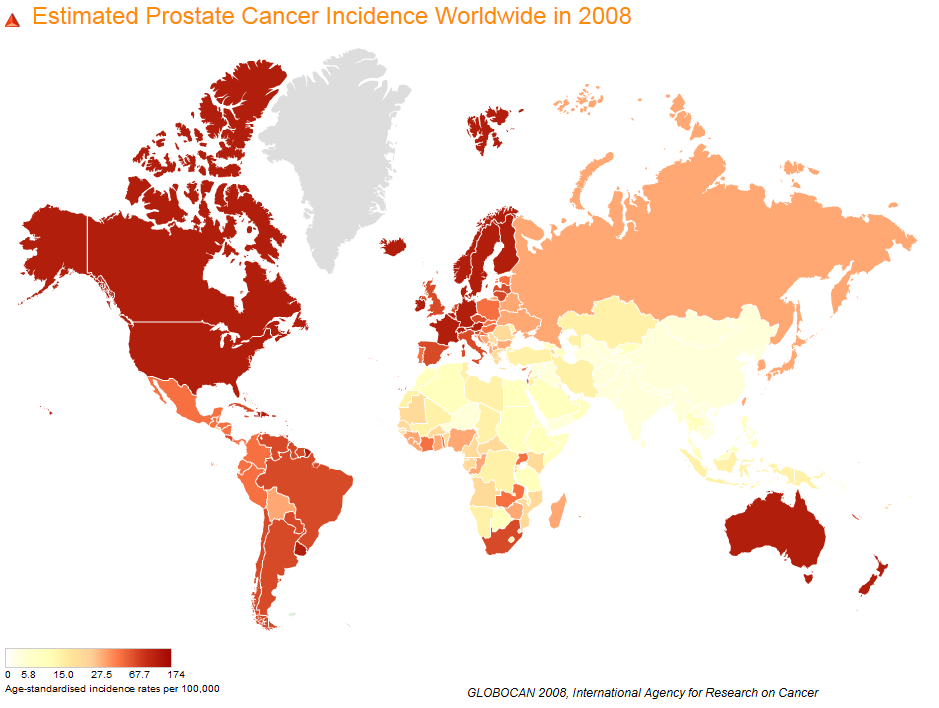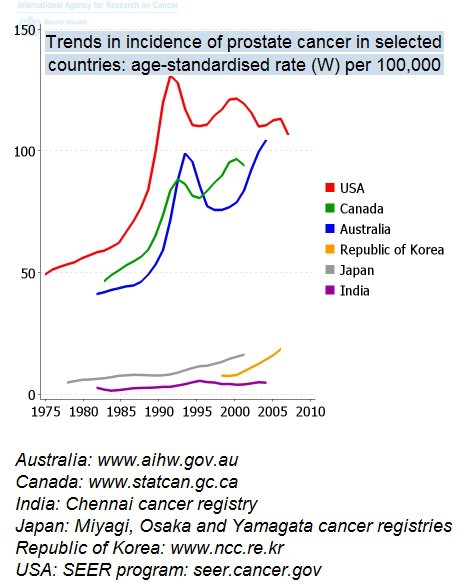Prostate cancer
Some research (2012) suggests that there may be a correlation between circumcision and a reduced rate in the incidence of prostate cancer, however no research as of yet has been able to produce a demonstrable causal link. A recent study led by Jonathan L. Wright suggests that there may be a link between circumcision and a reduced risk in prostate cancer. Wright himself admits, however, that the association does not necessarily establish a causal link.
There is, as of yet, no known causal link between prostate cancer and a reduced rate of prostate cancer.
World data
Studies and research that suggest there may be a causal link between circumcision and a reduction in prostate cancer fail to correlate with real-world data.
World data shows that prostate cancer is quite prevalent in countries where circumcision is common, if not near-universal. Incidence of prostate cancer is also quite low in many countries where circumcision is not a common practice, if extremely rare. Whereas 80% of men are circumcised from birth in the United States, circumcision is rare in countries in South America. In this map, one can see that incidence of prostate cancer is estimated to be higher in the US, where circumcision is common, than in its neighbors to the south, where circumcision is rare. It is also estimated to be much lower in various countries in Asia where circumcision is not a common practice, such as Japan, China, Thailand and others.
According to the American Cancer Society, in America, 1 in 6 men will be diagnosed with prostate cancer during their lifetime, where 80% of American men have been circumcised from birth.
The foreskin provides immunological functions that may help to protect against prostate cancer, which are denied to many American males because of circumcision.


